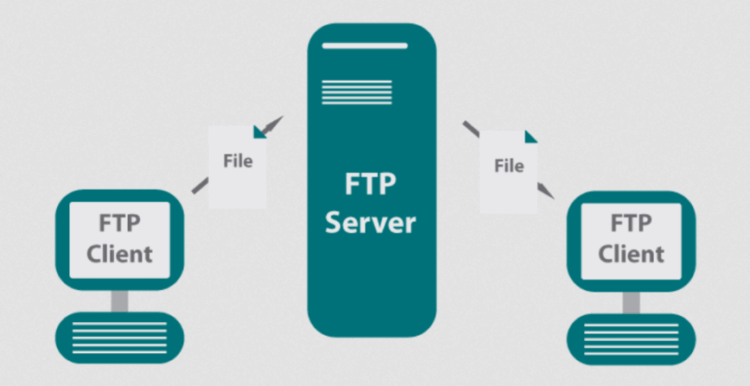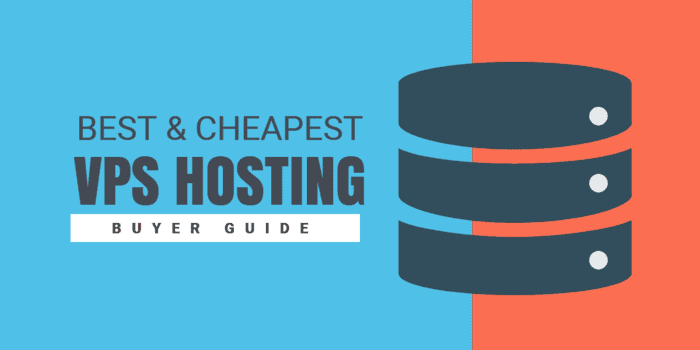Secure hosting for healthcare and fintech websites is crucial in safeguarding sensitive data and meeting regulatory standards. This comprehensive guide delves into the essential features, compliance requirements, data encryption methods, backup strategies, server location importance, and scalability considerations for a robust hosting solution.
Let's explore how these aspects contribute to a secure and reliable hosting environment.
Secure Hosting Features
When it comes to secure hosting for healthcare and fintech websites, several essential features play a crucial role in ensuring the protection of sensitive data and maintaining the integrity of the platforms. These features are designed to mitigate potential risks and safeguard against cyber threats that could compromise the confidentiality and availability of critical information.SSL Certificates
SSL certificates are fundamental in establishing a secure connection between the user's browser and the website server. By encrypting data transmitted between the two points, SSL certificates help prevent unauthorized access and interception of sensitive information, such as personal details, financial data, and medical records. This encryption technology is essential for maintaining data confidentiality and integrity, especially in industries like healthcare and fintech where privacy is paramount.Firewalls
Firewalls act as a barrier against malicious traffic and unauthorized access attempts by filtering incoming and outgoing network traffic based on predetermined security rules. They help prevent cyber attacks, such as hacking and malware infections, by monitoring and controlling the flow of data between the website server and external networks. Firewalls are critical for detecting and blocking potential threats before they can infiltrate the system and compromise sensitive data.DDoS Protection
DDoS (Distributed Denial of Service) attacks can disrupt website availability and performance by overwhelming the server with a massive volume of traffic from multiple sources. DDoS protection mechanisms are designed to identify and mitigate these attacks by filtering incoming traffic, redirecting legitimate requests to the server, and blocking malicious traffic. By implementing DDoS protection measures, healthcare and fintech websites can ensure continuous availability and prevent service disruptions caused by malicious actors.Regular Security Audits
Regular security audits are essential for assessing the effectiveness of existing security measures, identifying potential vulnerabilities, and implementing necessary updates to enhance the overall security posture of the hosting environment. By conducting periodic security audits, website administrators can proactively detect and address security weaknesses, comply with industry regulations and best practices, and mitigate the risks associated with evolving cyber threats. These audits help maintain a robust security framework that safeguards sensitive data and protects against unauthorized access or data breaches.Compliance Requirements
When it comes to hosting healthcare and fintech websites, there are specific compliance regulations that must be adhered to in order to ensure the security and privacy of sensitive data. Failure to comply with these regulations can result in severe penalties and damage to the reputation of the organization.HIPAA Compliance for Healthcare Websites
Ensuring HIPAA compliance is crucial for healthcare websites, as it involves protecting the confidentiality and security of patients' medical information. Hosting providers that are HIPAA compliant have the necessary safeguards in place to protect sensitive data, such as encryption, access controls, and regular security audits.GDPR Compliance for Fintech Websites
Fintech websites that deal with customers in the European Union must comply with the General Data Protection Regulation (GDPR). This regulation focuses on protecting the personal data and privacy of individuals and requires hosting providers to implement measures such as data encryption, data minimization, and user consent mechanisms.PCI DSS Compliance for Fintech Websites
For fintech websites that handle payment card information, compliance with the Payment Card Industry Data Security Standard (PCI DSS) is essential. Hosting providers that are PCI DSS compliant adhere to strict security protocols to protect cardholder data, such as network security, encryption, and regular security testing.Choosing a Compliant Hosting Provider
Selecting a hosting provider that meets these compliance standards is crucial for ensuring data security and regulatory compliance. By partnering with a provider that is already compliant, healthcare and fintech websites can benefit from the expertise and resources needed to safeguard sensitive information and maintain trust with customers and regulatory bodies.Data Encryption
Data encryption plays a crucial role in safeguarding sensitive information on healthcare and fintech websites. By encrypting data, organizations can ensure that unauthorized parties cannot access or decipher confidential data, protecting both businesses and their clients from potential security breaches.Comparison of Encryption Methods
When it comes to secure hosting, different encryption methods such as AES (Advanced Encryption Standard), RSA (Rivest-Shamir-Adleman), and ECC (Elliptic Curve Cryptography) are commonly used to protect data. Each encryption method has its strengths and weaknesses, making them suitable for specific use cases.- AES: AES is a symmetric encryption algorithm known for its speed and efficiency in securing data. It is widely used in various applications due to its robust security features and fast encryption/decryption processes.
- RSA: RSA is an asymmetric encryption algorithm that uses public and private keys for encryption and decryption. It is often used for secure communication and digital signatures, providing a high level of security but requiring more computational resources.
- ECC: ECC is a form of public-key cryptography that offers strong security with shorter key lengths compared to RSA. It is especially useful for constrained environments where resources are limited, making it a popular choice for mobile devices and IoT applications.
Overall, choosing the right encryption method depends on the specific requirements of the healthcare and fintech websites, considering factors such as security levels, performance, and compatibility.
Backup and Disaster Recovery
In the digital age, ensuring the safety and availability of data is crucial for healthcare and fintech websites. Backup and disaster recovery strategies play a vital role in maintaining data integrity and continuity in case of unforeseen events.Regular data backups are essential to prevent data loss in the event of system failures, cyber attacks, or human errors. These backups should be stored securely and frequently updated to ensure the latest data is always available. Offsite storage is also important to protect data from physical disasters such as fires, floods, or theft. Having backups stored in a different location ensures that data can be recovered even if the primary location is compromised.Automated recovery processes can help streamline the restoration of data in case of emergencies. By automating the backup and recovery procedures, healthcare and fintech websites can minimize downtime and quickly resume normal operations. Implementing a robust disaster recovery plan that includes regular testing of backup systems is essential to ensure the effectiveness of these strategies.Backup Solutions
- Regular data backups: Schedule routine backups of all critical data to prevent loss in case of system failures or cyber attacks.
- Offsite storage: Store backups in secure offsite locations to protect data from physical disasters and ensure accessibility in emergency situations.
- Automated recovery processes: Implement automated backup and recovery systems to streamline data restoration and minimize downtime during emergencies.
Server Location and Redundancy
Server location and redundancy play a crucial role in ensuring high availability and minimizing downtime for hosting healthcare and fintech websites. By strategically choosing geographically dispersed server locations and implementing redundant systems, the reliability of hosting services can be significantly enhanced.Importance of Server Location
Server location is critical as it directly impacts the latency and loading speed of a website. Placing servers closer to the target audience can result in faster response times and improved user experience. For healthcare and fintech websites dealing with sensitive data and transactions, having servers in proximity to users is essential for ensuring smooth operations and building trust.Benefits of Redundancy
Redundancy involves creating backups and fail-safe mechanisms to prevent system failures and data loss. In the event of a hardware failure or unexpected downtime, redundant systems can seamlessly take over to maintain service continuity. For healthcare and fintech websites that require uninterrupted access to critical information, redundancy is crucial for safeguarding data integrity and minimizing disruptions.Scalability and Performance
In the context of hosting healthcare and fintech websites, scalability and performance optimization are crucial factors that can significantly impact the user experience, security, and overall success of the platforms. Scalability refers to the ability of the hosting infrastructure to handle increasing amounts of traffic, data, and user interactions without compromising performance. Performance optimization, on the other hand, focuses on enhancing the speed, responsiveness, and reliability of the website to ensure seamless user interactions and transactions.Strategies for Scaling Hosting Resources
To effectively scale hosting resources based on traffic fluctuations and performance demands, consider the following strategies:- Implement Load Balancing: Distribute incoming traffic across multiple servers to prevent overload on any single server and ensure optimal performance.
- Auto-Scaling: Set up automated processes that can dynamically adjust server resources based on real-time traffic patterns to meet demand spikes.
- Caching: Utilize caching mechanisms to store frequently accessed data and reduce the load on the server, improving response times for users.
- Optimize Database Queries: Fine-tune database queries to reduce processing time and enhance the overall performance of the website.
- Content Delivery Networks (CDNs): Utilize CDNs to store and deliver website content from servers located closer to users, reducing latency and improving loading times.










